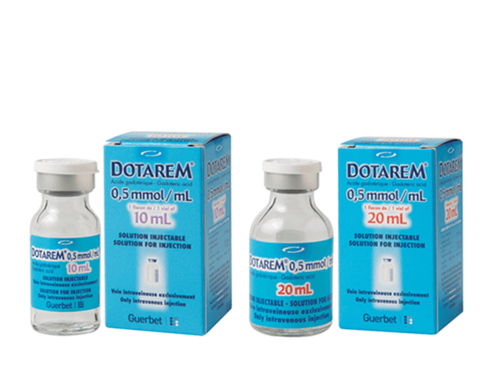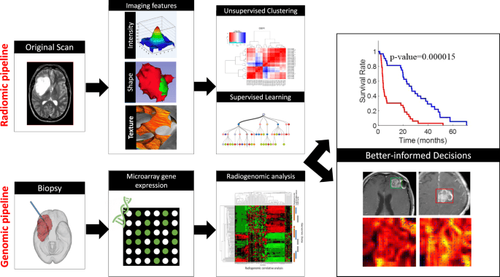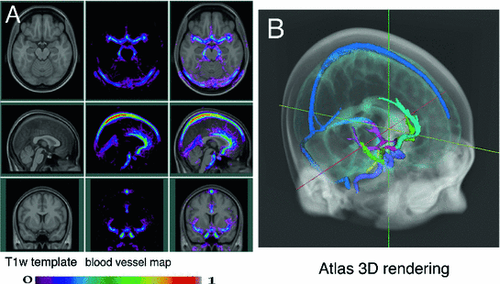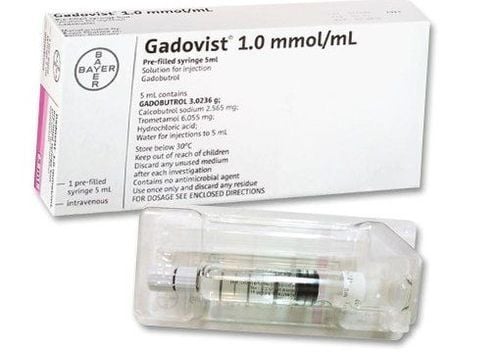This is an automatically translated article.
The article is professionally consulted by Dr. Nguyen Dinh Hung - Diagnostic Imaging - Department of Diagnostic Imaging - Vinmec Hai Phong International General Hospital.
Abdominal magnetic resonance imaging is used for the purpose of examining the internal organs of the abdomen. This method has many advantages in terms of imaging because it provides anatomical images of special organs in the abdomen. However, this method is not commonly used in clinical practice but has specific indications. So, which subjects will be indicated for abdominal magnetic resonance imaging?
1. What organs does the abdomen include?
The abdominal cavity is a body cavity located below the chest cavity and above the pelvis. The upper limit is the diaphragm separating the thoracic cavity and the lower limit is the pelvis. The abdominal cavity contains many important organs of the digestive system such as: stomach, liver, gallbladder, spleen, pancreas, intestines; urinary system such as kidneys, ureters and some other organs such as adrenal glands, large blood vessels.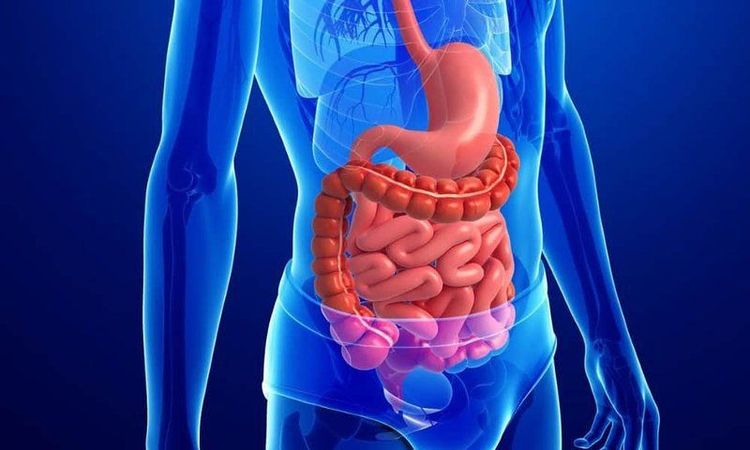
2. What is an abdominal magnetic resonance imaging?
By applying the physical principles of the magnetic field of nuclei, magnetic resonance imaging (MRI) of the abdomen is a method of obtaining signals from organs through the phenomenon of nuclear magnetic resonance. Hydrogen atoms in the body will absorb and release energy signals under the influence of the magnetic field and radio waves generated by the magnetic resonance machine, the signal receiver will receive these signals and convert them to image form based on the density of protons at the target organ.
Magnetic resonance imaging allows the doctor to survey many cross-sections, clear, detailed, high-resolution images, so that the lesion can be assessed in detail and the function of the structure in the cavity can be assessed in detail. belly. In addition, when combined with contrast agents, it will help to further investigate the vascular distribution, blood supply, and perfusion abnormalities of the organ to be investigated.
Magnetic resonance imaging has proven important in the diagnosis and monitoring of treatment in many different diseases, especially in the investigation of the abdominal organs. Compared with other methods such as computed tomography, X-ray or ultrasound, magnetic resonance imaging in some diseases gives more accurate results.
Moreover, the scan does not use radiation, so this is also a method that can be used in pregnancy. Most abdominal magnetic resonance imaging can survey most organs such as kidney, spleen, pancreas, biliary tract, but the liver is a special structure that is scanned by magnetic resonance imaging according to a different procedure.

3. Who needs an abdominal magnetic resonance imaging?
When it is necessary to evaluate and survey the damage to the organs in the abdomen, the doctor may appoint an abdominal magnetic resonance (MRI) with or without injection of magnetic contrast.
In the spleen, magnetic resonance imaging is indicated when it is necessary to detect abnormalities in the spleen, evaluate the tissue for suspicion of an accessory spleen.
For pancreas, indications include evaluation of pancreatic duct dilation/obstruction, detection of pancreatic tumors, assessment of fluid leakage, peripancreatic or intrapancreatic fluid, assessment of acute pancreatitis, chronic pancreatitis, and complicated pancreatitis. postoperative follow-up.
For the urinary system, magnetic resonance imaging is required in cases where it is necessary to evaluate ureteral abnormalities, detect kidney tumors, evaluate before and follow-up after surgery in the kidney, and examine adrenal structure abnormalities.
Regarding the gallbladder and biliary tract, magnetic resonance imaging can evaluate gallbladder dilatation, detect cholangiocarcinoma, stage cholangiocarcinoma, or evaluate for abnormalities of biliary tract.
The peritoneum and gastrointestinal tract can also be examined by magnetic resonance imaging. Indications include preoperative assessment of gastric, intestinal, mesenteric, and colonic tumors, and detection of abdominal fluid accumulation.
In addition, magnetic resonance imaging may also be indicated in cases of acute abdominal pain in pregnancy.

4. When should I have an abdominal magnetic resonance imaging?
It should be noted that the indication for abdominal magnetic resonance imaging is an indication that needs to be evaluated, examined and consulted by a specialist. Therefore, when there are abnormal symptoms in the abdomen, patients need to go to the doctor and consult a specialist before having an abdominal MRI. In many cases, combining MRI with some other methods increases the ability to accurately diagnose health problems.
Symptoms to watch out for in the abdomen such as dull or persistent abdominal pain, severe or cyclical pain. Abdominal pain accompanied by other symptoms such as diarrhea, nausea, weight loss, jaundice, loss of appetite, pale skin, pale blue... Frequent urination or not urinating, dark or bloody urine, leg edema, Hands, face, itchy rash, discharge are also systemic symptoms that need to be evaluated for the cause of the abdominal organs.
Vinmec International General Hospital is currently one of the major hospitals with modern machinery and equipment for general medical examination and treatment procedures and accurate and modern MRI for brain and vascular diseases. brain blood in particular.
Especially, Vinmec International General Hospital is the first unit in Southeast Asia to put into use the new 3.0 Tesla Silent Resonance Imaging machine from the US manufacturer GE Healthcare.
The machine currently applies the safest and most accurate magnetic resonance imaging technology available today, without using X-rays, non-invasive. Silent technology is very beneficial for patients who are young children, the elderly, patients with weak health or have just had surgery.
Simultaneously with the spirit: PATIENT CENTER, in addition to equipment, at Vinmec with a team of well-trained and experienced technicians, the entire process is built according to international standards. economic. The team of diagnostic doctors is highly qualified and experienced. Facilities are of the best standard. Patients will feel completely secure when they come for examination and diagnosis as well as experience a comfortable and safe world-class medical examination and treatment environment.
Doctor Nguyen Dinh Hung has over 10 years of experience in the field of diagnostic imaging (Ultrasound, CT, MRI). Trained and practiced on hepatobiliary interventional radiology at Bach Mai Hospital (Intervention under ultrasound guidance, DSA, CT...) and deployed at the Diagnostic Imaging Department of Viet Tiep Hospital Hai Phong. Currently, he is a doctor at the Diagnostic Imaging Department of Vinmec Hai Phong International General Hospital.
Please dial HOTLINE for more information or register for an appointment HERE. Download MyVinmec app to make appointments faster and to manage your bookings easily.






